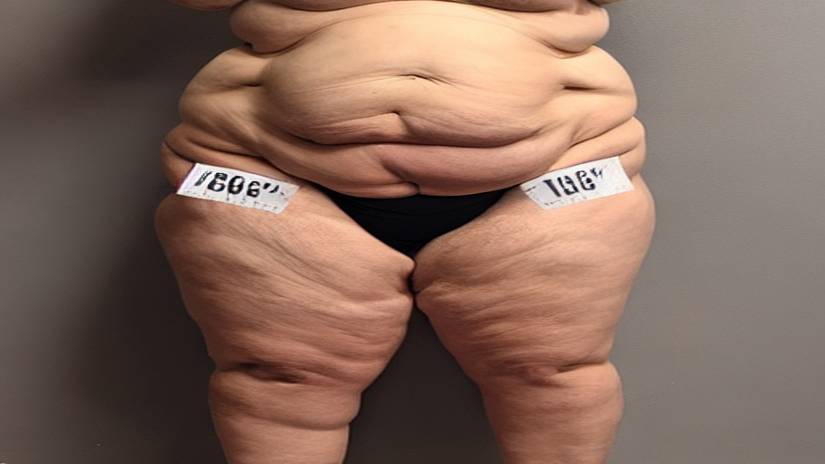Does your body shape change when you lose weight burning body fat is a common goal for many individuals seeking to improve their health and well-being. However, the journey of weight loss often raises questions about how the body shape changes during this process. Understanding the intricate relationship between body shape and weight loss involves delving into the complexities of body composition.
Introduction to Does Your Body Shape Change When You Lose Weight
Body shape and weight loss are essential in understanding the complex relationship between physical characteristics and overall health. Body shape refers to the distribution of fat on the body, which can impact both appearance and the risk of developing chronic diseases such as diabetes and heart disease. Weight loss, on the other hand, involves a combination of diet, exercise, and lifestyle changes aimed at reducing excess body fat.
A comprehensive understanding of body shape and weight loss requires knowledge of various factors including genetics, metabolism, and individual health goals. It is important to approach weight loss holistically, taking into account both physical and mental well-being. By developing a personalized plan that addresses individual needs and preferences, individuals can achieve sustainable results in achieving their desired body shape while improving overall health and quality of life.
What Defines Body Shape?
Body shape is defined by the proportions and distribution of fat and muscle on an individual’s body. The three main body shapes are ectomorph (lean and long), mesomorph (muscular and well-built), and endomorph (soft and round). These shapes are largely determined by genetics, but can also be influenced by factors such as diet, exercise, and lifestyle. Understanding one’s body shape is crucial for determining how to best achieve fitness goals and maintain a healthy weight.
By identifying their body shape, individuals can tailor their workouts and nutrition plans to maximize results and enhance overall health. Additionally, understanding body shape can help individuals embrace their unique physical characteristics and foster a positive self-image. Overall, body shape is a key factor in determining how to care for our bodies effectively and cultivate a sense of confidence in our physical appearance.
Overview of Weight Loss and Body Composition
Weight loss and body composition are critical components of overall health and wellness. When individuals strive to achieve weight loss goals, they must consider not only the number on the scale but also their body composition, which includes lean muscle mass and body fat percentage. A balanced approach that combines healthy eating habits, regular exercise, and mindful lifestyle choices is key to sustainable weight loss and improved body composition. Additionally, factors such as genetics, metabolism, hormone levels, and stress can all impact an individual’s ability to lose weight effectively.
Working with a healthcare professional or registered dietitian can provide personalized guidance and support tailored to each individual’s unique needs and goals. Prioritizing proper nutrition, regular physical activity, adequate sleep, and stress management are all essential components in achieving long-term success in weight loss and optimizing body composition for overall health and well-being.
Understanding Body Composition
Body Fat vs. Muscle Mass
Body fat refers to the amount of fat tissue in your body, while muscle mass represents the weight of muscle tissue. Both play a crucial role in determining body composition.
Role of Metabolism in Body Composition
Metabolism influences how the body processes nutrients and energy. A higher metabolism can aid in maintaining a healthy body composition by burning more calories.
Factors Influencing Body Shape Changes
Genetics and Body Shape
Genetics play a significant role in determining body shape, influencing where you tend to store fat and how your body proportions are structured.
Diet and Nutrition Impact on Body Shape
Diet and nutrition impact body shape by affecting fat storage, muscle growth, and overall body composition. Eating a balanced diet and maintaining proper nutrition can support a healthy body shape.
Effects of Weight Loss on Body Shape
Changes in Body Measurements
Weight loss can lead to changes in body measurements, such as reductions in waist circumference, hip size, and overall body fat percentage.
Shifts in Body Proportions
As you lose weight, shifts in body proportions may occur, with changes in the distribution of fat and muscle mass altering the overall appearance and contours of your body shape.
Strategies to Maintain Body Shape During Weight Loss
Importance of Balanced Diet and Exercise
When it comes to weight loss, the dynamic duo of a balanced diet and regular exercise is like Batman and Robin – they work best together! Eating nutrient-rich foods while moving your body helps you shed pounds while keeping your shape in check.
Incorporating Resistance Training for Muscle Retention
Think of resistance training as your secret weapon in the battle against saggy skin after weight loss. By pumping iron or using resistance bands, you can help maintain muscle mass while saying sayonara to excess fat.
Importance of Strength Training in Body Transformation
Building Lean Muscle Mass
Forget about bulking up like the Hulk – building lean muscle through strength training helps sculpt your body like a Michelangelo masterpiece. Plus, lean muscle torches calories even when you’re chilling on the couch.
Enhancing Metabolic Rate through Strength Training
Picture your metabolism as a little worker bee buzzing around inside you, burning calories. Strength training revs up this bee to help you burn more calories throughout the day, even while binge-watching your favorite show.
Psychological Impact of Body Shape Changes
Body Image and Self-Esteem
Our bodies and minds are like BFFs – if one feels off, the other notices. Changes in body shape during weight loss can affect how we see ourselves. It’s important to practice self-love and remember that beauty comes in all shapes and sizes.
Coping Strategies for Emotional Challenges
Weight loss isn’t just about physical changes – it can stir up a cocktail of emotions. Find healthy ways to cope, like talking to a friend, practicing self-care, or belting out your favorite tunes in the shower (no judgment here!).
Embracing a Healthy Body Image
In the end, the journey to a healthier body is about more than just numbers on a scale. It’s about feeling strong, confident, and comfortable in your skin. Embrace your unique shape, treat yourself kindly, and remember, you’re a masterpiece in progress.
Reflecting on the Journey
In conclusion, the process of losing weight involves more than just numbers on a scale. It encompasses a transformation of body shape, composition, and ultimately, a shift towards a healthier lifestyle. By embracing a positive body image and focusing on sustainable practices such as balanced nutrition, regular exercise, and strength training, individuals can not only achieve their weight loss goals but also maintain a healthy body shape in the long run. Remember, everybody is unique, and the journey towards a healthier you should be celebrated for the positive changes it brings, both physically and mentally.
Frequently Asked Questions
1. Will I lose weight in specific areas of my body first?
I’m here to tell you that yes, you can lose weight in specific areas of your body first! It’s important to keep in mind that spot reduction is a myth, but by focusing on targeted exercises and a healthy diet plan, you can achieve your desired results.
2. How can I prevent loose skin while losing weight?
Excited to embark on your weight loss journey? An important aspect to consider is how to prevent loose skin while shedding those extra pounds. To maintain skin elasticity and firmness, it’s essential to incorporate strength training exercises into your workout routine. By building muscle mass, you can fill out the space left by fat loss and help tighten the skin. Additionally, staying hydrated is key as water plays a crucial role in maintaining skin health and elasticity. A diet rich in antioxidants, vitamins, and minerals can also aid in keeping your skin supple during weight loss.
3. Is it normal for body shape to fluctuate during weight loss?
Yes, it is completely normal for your body shape to fluctuate during weight loss! As you start shedding pounds, your body will naturally adjust and redistribute fat in different areas. This can result in changes to the way your clothes fit or how certain parts of your body appear. Don’t be discouraged by these fluctuations – they are a sign that your body is adapting to the new changes you’re making through exercise and healthy eating habits.







